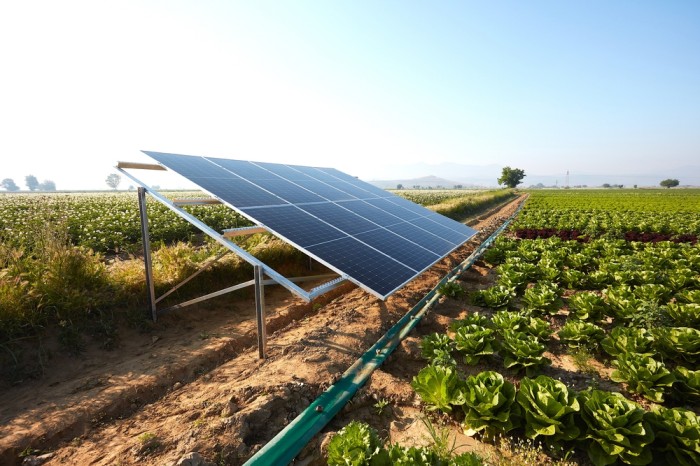Farming is an essential aspect of human civilization, providing sustenance and resources for communities worldwide. However, modern agricultural practices face numerous challenges, particularly concerning energy consumption and environmental impact. In recent years, the integration of solar panels into agricultural operations has emerged as a promising solution to address these challenges. Agriculture solar panel offer a sustainable approach to energy generation, helping farmers reduce costs, increase efficiency, and minimize their ecological footprint.
Understanding the Energy Challenges in Farming
Farming is inherently energy-intensive, requiring power for various operations such as irrigation, equipment operation, and facility maintenance. Traditional energy sources like fossil fuels contribute to greenhouse gas emissions and are subject to price fluctuations, posing economic and environmental risks to farmers. Additionally, remote or off-grid farms may face logistical challenges in accessing reliable electricity supply.
The Role of Agriculture Solar Panels
Agriculture solar panels, also known as solar photovoltaic (PV) systems, harness sunlight to generate electricity. These panels consist of photovoltaic cells that convert sunlight into direct current (DC) electricity, which can then be converted into alternating current (AC) electricity for use on the farm or fed into the grid. By utilizing renewable solar energy, farmers can reduce their dependence on non-renewable energy sources and mitigate the environmental impact of their operations.
Maximizing Energy Efficiency
One of the primary benefits of agriculture solar panels is their ability to maximize energy efficiency on the farm. Solar panels capture sunlight during daylight hours, converting it into electricity to power various farm activities. This renewable energy source can be used to operate irrigation systems, machinery, lighting, and heating/cooling systems, among other applications. By utilizing solar power, farmers can reduce their reliance on conventional grid electricity or diesel generators, resulting in significant cost savings over time.
Enhancing Sustainability
In addition to cost savings, agriculture solar panels contribute to the sustainability of farming practices. Solar energy is clean and renewable, producing no greenhouse gas emissions or air pollutants during operation. By transitioning to solar power, farmers can lower their carbon footprint and minimize environmental pollution associated with traditional energy sources. Moreover, solar panels can be integrated into existing farm infrastructure, utilizing otherwise unused or underutilized land for energy generation without disrupting agricultural activities.
Mitigating Climate Change Impact
Climate change poses significant challenges to agricultural productivity, including shifting weather patterns, increased temperatures, and extreme weather events. Agriculture solar panels play a crucial role in mitigating the impact of climate change by reducing greenhouse gas emissions and promoting sustainable land use practices. By generating clean energy on-site, farmers can contribute to global efforts to combat climate change while safeguarding the long-term viability of their operations.
Improving Energy Resilience
Another advantage of agriculture solar panels is their ability to improve energy resilience on the farm. Solar power systems can provide a reliable source of electricity, particularly in remote or off-grid locations where access to traditional power infrastructure may be limited. By generating electricity on-site, farmers can reduce their vulnerability to power outages caused by grid failures or natural disasters. This enhanced energy resilience ensures continuity of operations and minimizes disruptions to farm activities, ultimately enhancing productivity and profitability.
Optimizing Land Use
When it comes to agriculture solar panels, land use optimization is a critical consideration. Solar panels can be installed on various types of land, including open fields, rooftops, and unused parcels. By utilizing existing infrastructure and leveraging available space, farmers can maximize the efficiency of their solar installations without sacrificing valuable agricultural land. Additionally, certain crops can be grown beneath solar panels in a practice known as agrivoltaics, allowing farmers to generate electricity while maintaining agricultural production.
Financial Incentives and Return on Investment
Investing in agriculture solar panels can yield significant financial benefits for farmers. In many regions, government incentives, tax credits, and rebates are available to support the adoption of renewable energy technologies. These financial incentives can offset the upfront costs of installing solar panels and accelerate the return on investment for farmers. Additionally, solar power systems offer long-term savings on electricity bills, providing a reliable and predictable source of energy at a lower cost than traditional utility rates.
Overcoming Barriers to Adoption
Despite the numerous benefits of agriculture solar panels, there are still barriers to widespread adoption. Upfront costs, technical complexity, and regulatory hurdles can deter some farmers from investing in solar energy systems. However, advancements in solar technology, declining costs, and supportive policies are making solar power more accessible and attractive to agricultural stakeholders. Collaboration between government agencies, industry partners, and financial institutions is essential to address these barriers and accelerate the transition to solar-powered farming.
DSG Energy, a subsidiary of the DS Group of companies, exemplifies the commitment to renewable energy in the agricultural sector. With a focus on the power sector and expertise in renewable energy solutions, DSG Energy is positioned to address the energy challenges facing farming operations. By leveraging their experience and consultancy services, DSG Energy collaborates with both public and private stakeholders to implement large-scale renewable energy projects, including the deployment of agriculture solar panels. This strategic approach aligns with the company’s vision to contribute to sustainable development in Pakistan and beyond, offering innovative solutions to enhance energy efficiency and environmental sustainability in farming practices.
Conclusion
Agriculture solar panels offer a sustainable solution to the energy challenges facing modern farming operations. By harnessing the power of the sun, farmers can reduce costs, enhance sustainability, and mitigate the environmental impact of their activities. From maximizing energy efficiency to improving resilience and optimizing land use, solar power has the potential to transform agriculture for the better. With continued innovation and support, agriculture solar panels will play an increasingly vital role in shaping the future of farming.

